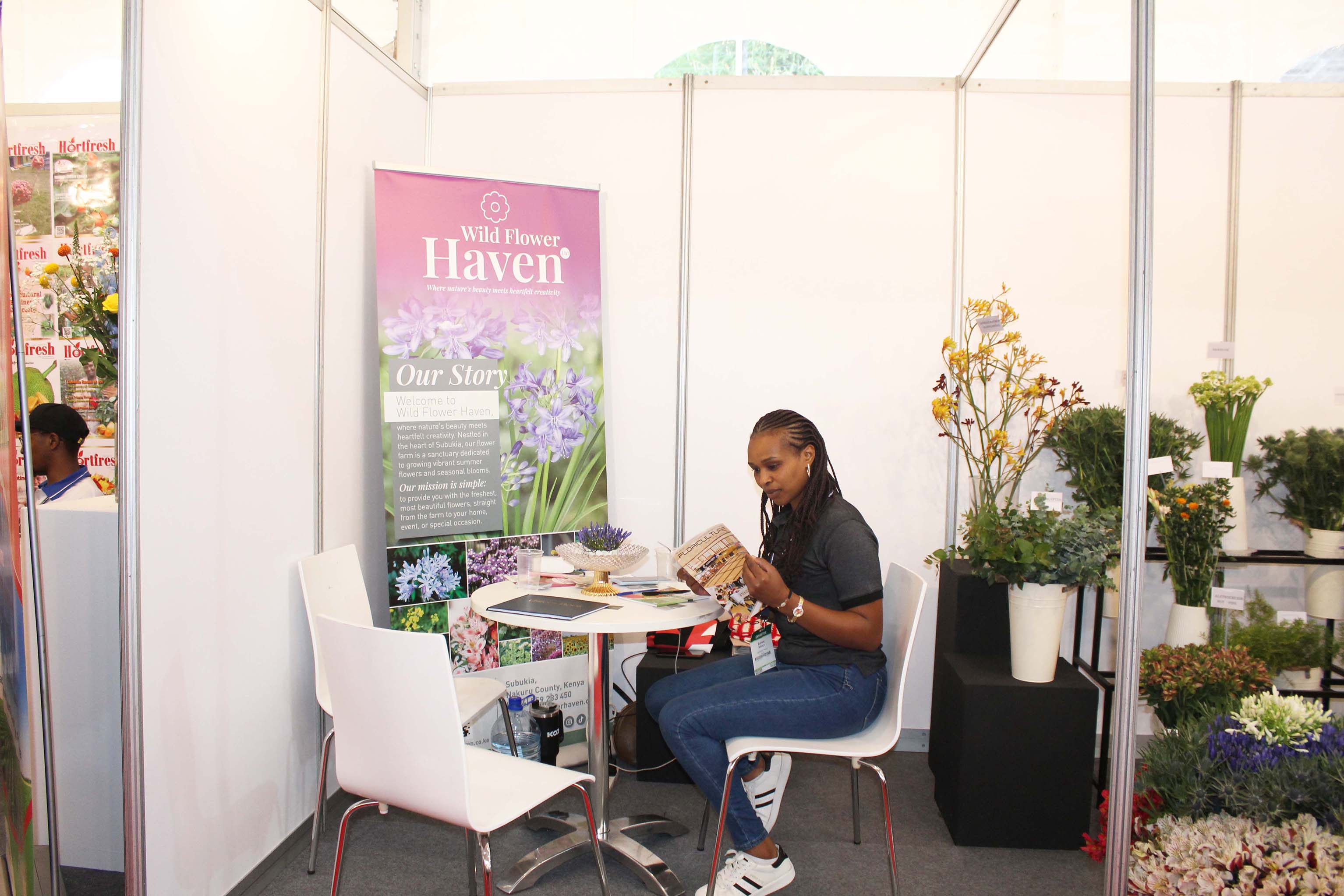
Floriculture. When one thinks of flowers, beautiful blossoms and fragrance comes to mind. But behind the scenes, lies a fierce competition to grow and export flowers that meet the highest global standards.
And in this cutthroat industry, veterans have an upper hand with years of experience and bargaining power while new entrants and small-scale growers, by contrast, face steep barriers, from limited capital to unpredictable weather and shifting regulations.
Without resilience, just like a flower cut too soon, a budding brand may shrivel and wither away. However, some new entrants are defying the odds, one such is Wildflower Haven.
At IFTEX 2025, amid veteran exporters and established growers, Eunice Ndung’u, the managing director of Wildflower Havens, says what they lack in years, they make up for in ambition.
“We’ve only been farming for a year, and already we are in this prestigious expo, interacting with market giants and building relationships with global players,” she says.
Located in Subukia, on a 4-acre farm, the startup grows and exports summer flowers with the help of five permanent staff and seasonal casual laborers.
As a newcomer in the floriculture industry, Eunice admits that she quickly learnt that growing flowers isn’t as simple as “planting and waiting.”
“Soil is different,” she says. “Some flowers thrive in Subukia but won’t perform the same way in places like Nyeri.”
She also highlights that weather has been a harsh teacher.
“Dew alone,” she explains, “can wipe out an entire section overnight.”
Beyond the environmental learning curve, she highlights the financial strain that comes with starting out. “You need enough capital just to begin — for fertilizers, pesticides, and even soil testing. It’s a business that demands serious investment before you see returns.”
She emphasizes that access to capital, citing the cost of fertilizers, pesticides, and soil testing.
Yet growing is only half the battle — without a market, losses are almost guaranteed. Currently exporting through a sister company, Wildflower Haven is working to finalize its own export registration.
Eunice sees promise in global markets like Holland, the Middle East, and even Russia. “We won’t refuse any new market,” she says with optimism. Attending IFTEX is part of that strategy, to build networks, raise awareness of their brand, and connect directly with buyers.
She also points to recent government discussions around phytosanitary reforms as a welcome shift. “If initial costs are reduced, it will really assist us, especially new entrants,” she says.
Despite being a young player in the industry, Wildflower Haven is setting itself apart from competition on what matters most to buyers, affordability, quality, and reliability.
“I believe our products are cost-friendly,” says Eunice.

Besides competitive pricing, the company is deeply committed to agronomic best practices, ensuring that its flowers are not only healthy and vibrant but also grown sustainably.
“We follow the right directives with our plantation to ensure they’re efficient and sustainable,” she explains.
This attention to detail extends beyond the field to postharvest care. With proper treatment, Wildflower Haven’s Agapanthus lasts two to three weeks, while Eryngium and Ruscus maintain shelf life just as long, giving buyers confidence in the product’s longevity from farm to market.
Eunice envisions Wildflower Haven growing far beyond its modest beginnings. Over the next four to five years, the company aims to transition into full export independence and create over 100 jobs, contributing meaningfully to the local economy. But the ambition doesn’t stop at profit.
“We’re in a center where we can help our neighbors, that’s part of our long-term plan,” she says.
Through corporate social responsibility, the company hopes to uplift surrounding communities, positioning itself as both a sustainable business and a force for good in the floriculture landscape.
